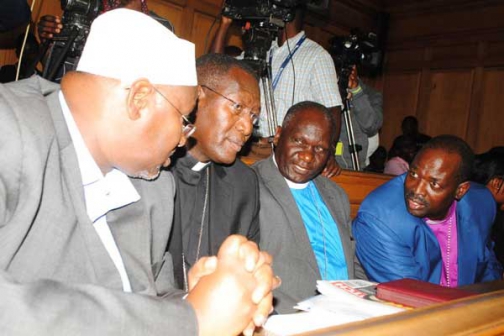×
The Standard e-Paper
Home To Bold Columnists

Hardlines, insincerity, lack of commitment, and bad blood between doctors and their employer caused the collapse of mediation talks to resolve the health crisis, The Standard can report.
A report by mediators from the Law Society of Kenya (LSK) and the Kenya National Commission on Human Rights (KNCHR) filed at the Court of Appeal revealed that none of the parties was willing to cede ground, leading to a walk out by representatives of the government and the Council of Governors.